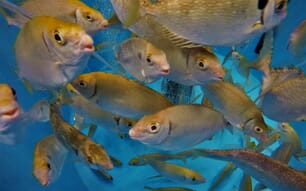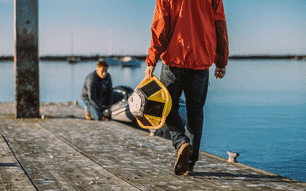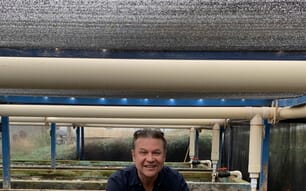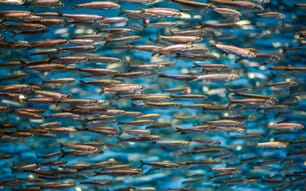Agriculture and Fisheries Minister, Roger Clarke, says some $22 million will be allocated from the Fisheries Management Development Fund (FMDF), to carry out the exercise.
The Minister was addressing an African, Caribbean and Pacific (ACP) Fish II Programme validation workshop, organised by the Ministry and the Belize-based ACP Regional Co-ordinating Unit, at the Farmers Training Centre, Twickenham Park, St. Catherine, on 3 October.
Mr Clarke also informed that an additional $17 million has also been earmarked to undertake rehabilitation of the hatchery/nursery facility at the aquaculture branch of the Centre, to provide quality seed stock for the industry.
The Minister said the aquaculture development plan is aimed at contributing to Jamaicas goals of ensuring food security; employment creation; import substitution; and foreign exchange savings.
These, he explained, will be achieved through a "complete revolution" of the aquaculture sub-sector, to include, among other things: the adoption of strategies incorporating the organisation of fish farmers using clustering and other approaches; development and implementation of effective marketing and promotion strategies; ensuring the continuous development of fish farmers and reshaping of farming practices through training programmes; and introducing appropriate technology and fish varieties for production.
Mr Clarke said these are expected to significantly complement other activities that the Ministry has been engaged in, since 2007, to facilitate resuscitation of the aquaculture sub-sector. These include the provision of extension services for specific aquaculture production areas; facilitation of tilapia production for the local market; and continued discussions with processing establishments to absorb some of the production from tilapia producers.
Other strategies, which he advised are being considered, include: establishment of an industry development plan to improve farmers efficiencies to produce fish fillet locally, thereby gradually reducing imports of these; developing local value-added capacity; and exploring export market prospects for whole tilapia, "since Jamaica has proximity to market advantages."
Mr Clarke said the Ministrys thrust is in recognition of the importance of the fisheries sectors role in Jamaicas food and nutrition security, economic development, and employment facilitation, particularly in rural communities. Additionally, the administrations cognizance of the challenges experienced by local fish farmers, particularly since 2007, resulting from factors such as the global economic recession, and escalation in fuel and commodity prices, and their impact on production costs.
"These challenges have led to a significant reduction in the production of aquaculture products, which fell from an estimated all time high of 8,019 metric tonnes in 2006, to an estimated 1,149 metric tonnes in 2011, a significant drop. The decline in production has been across all aquaculture products and has been the direct result of farmers response to the global economic pressures by reducing production or exiting the sector altogether," noted.
Mr assured that we (Government) are committed to ensuring the revitalisation of the aquaculture sub-sector."
"We will be creating the space for our aquaculture industry by ensuring that only wholesome fish products are imported into this country. These strategies (outlined) are intended to boost the acceptance and increased presence of aquaculture products on the local market," he added.
The ACP Fish II Project, entitled: 'Strengthening Fisheries Management in ACP Countries', is a 30 million European Union funded four and a half year-demand driven programme, which focuses on ensuring sustainable and equitable fisheries management in 78 ACP nations.
Jamaica is one of 15 Caribbean states currently benefitting under the programme, slated to conclude in November 2013.
The workshop brought together various private and public sector stakeholders in the fisheries sub-sector for presentations and discussions, aimed at developing a Land and Water Use Development Plan and Blue Print for an Aquaculture Action Plan for Jamaica, which will serve as a guide to enhance the countrys fisheries development and outputs.
Aquaculture Development Plan to be Implemented
JAMAICA - An Aquaculture Development Plan is to be implemented this year, with assistance from the Food and Agriculture Organisation (FAO).
by Lucy Towers




